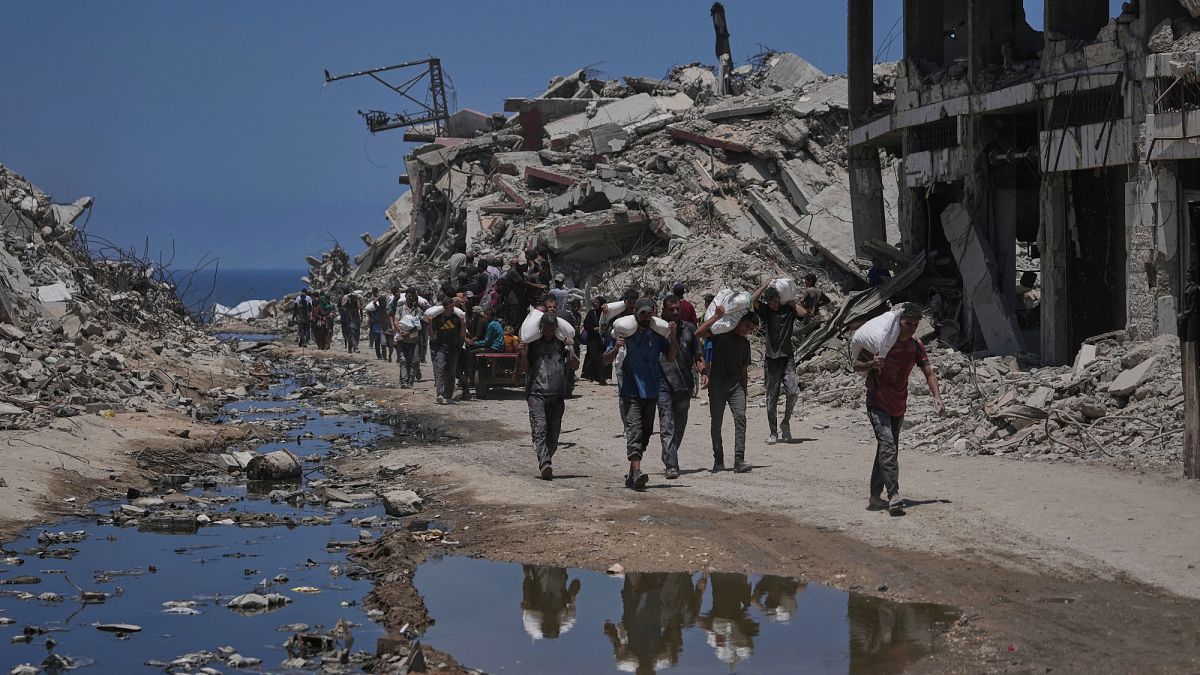

In a world where the interplay of socio-political dynamics often leaves many in vulnerable situations, current news highlights the pressing need for humanitarian awareness and action. In regions such as Gaza and amidst immigration issues in the United States, people continue to face immense challenges that call for thoughtful engagement and support from the global community.
In Gaza, the resilience of local journalists and everyday people is brought into focus amidst harsh realities. According to recent reports, the image of a once vibrant city working within its own strife is now shaken, as the meager presence of media persists to narrate the tales otherwise left untold. The AFP news agency continues to operate with a smaller contingency in Gaza, including a freelance writer, multiple photographers, and video freelancers, all striving to bring the stories of their home to international light despite limited resources and significant risk. These individuals remain committed to documenting an area’s struggle and the necessity for humanitarian intervention, with concerns that, without assistance, sustaining their operations—and indeed their livelihoods—stands uncertain.
Furthermore, the humanitarian crisis in Gaza is profoundly affecting local inhabitants. With continued airstrikes, parts of Gaza City have become unrecognizable, leading to an increase in internal displacement. Recent footage offers a solemn glimpse into the lives of displaced families, now living in tents pitched within the confines of a bombed football stadium. This space, although initially designed as a place for sport and gathering community strength, has transitioned into a refuge. The scenes within these confines reflect an adaptable populace, finding shelter within the skeletal remains of pre-conflict infrastructure. Families aim to preserve their way of life despite being surrounded by echoes of conflict, their endurance serving as a testament to the human spirit. Each tent shields several lives seeking normalcy amid the chaos surrounding them.
Moving from the scene of conflict abroad to issues within the United States, a similarly significant humanitarian concern emerges, this time at the intersection of immigration policy and basic human rights. Recently revealed videos have shed light on the conditions within a New York City facility, where individuals are held by Immigration and Customs Enforcement (ICE) in stark environments offering little in the way of comfort or dignity. This particular site on the 10th floor of the 26 Federal Plaza building showcases challenging circumstances: people sleeping on floors near restroom facilities, evidence of minimal supplies and the stress of confinement.
The footage, distributed by the New York Immigration Coalition, brings a rare transparency to issues often confined behind bureaucratic walls, highlighting the pressing need for ethical accountability and reform in immigration enforcement. While the context of these detainments is framed by a broader political stance on immigration, the reality faced by those within these spaces is a call to more comprehensive, compassionate approaches that honor human dignity alongside administrative objectives.
As these stories unfold, the unifying thread is the critical role that awareness and intentional action play in improving conditions for those caught in such structures. The journalists operating in Gaza, the families living in improvised shelters, and the individuals navigating the complexities of immigration detention all represent communities seeking acknowledgment and real-time solutions to their immediate challenges. Global awareness, humanitarian intervention, and policy reforms are essential measures that can alleviate such burdens. By extending empathy and support, individuals and institutions alike can contribute to brighter futures for these resilient populations.
The calm resilience expressed in these stories reminds us of the importance of advocacy and solidarity at times when the quiet strength of the human spirit is most needed. Engaging with these narratives mindfully encourages a collective understanding that can guide actions toward peace, justice, and sustained support.
Source: {link}
